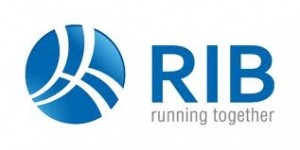After Trimble’s US$1.2bn bid to acquire Viewpoint, which SaaS construction collaboration business might be the next to be acquired?
Last summer, a year after Aconex had bought Conject and before Oracle had announced its bid to acquire Aconex, I was invited to speak privately to several groups of technology investors about the global SaaS construction collaboration market. A recurring question was “What will be the next big international deal?”
One scenario I suggested was a push by strong US players to grow their presence in other technologically sophisticated construction markets, particularly Europe. I even suggested Trimble might buy Viewpoint, while I also said that Procore would be likely to expand into Europe (having already established itself in Australia), either organically or via a strategic acquisition. Naturally, this prompted the question: “Who might be acquired?” I came up with half a dozen (in no particular order)….
Think Project!
 Of the currently independent vendors, Munich, Germany-based Think Project! has the strongest position in central Europe – the business often described itself as the most successful pure-SaaS provider (differentiating itself from Conject who retained some on-premise solutions in its German operations) – and has seen consistent double-digit growth in recent years. In 2016, it grew revenues to almost €30m (c. £25.6m or US$31.6m), up around 17% (May 2017 post), and was expanding beyond its central European market (Germany, Austria, Switzerland, Poland), establishing operations in France and Spain, while also investing in its BIM capabilities.
Of the currently independent vendors, Munich, Germany-based Think Project! has the strongest position in central Europe – the business often described itself as the most successful pure-SaaS provider (differentiating itself from Conject who retained some on-premise solutions in its German operations) – and has seen consistent double-digit growth in recent years. In 2016, it grew revenues to almost €30m (c. £25.6m or US$31.6m), up around 17% (May 2017 post), and was expanding beyond its central European market (Germany, Austria, Switzerland, Poland), establishing operations in France and Spain, while also investing in its BIM capabilities.
Procore
 The afore-mentioned Procore could also be an acquisition target. As I’ve previously described (in May 2017 post, Procore opens Australia office), Procore has attracted considerable investments since the early 2000s, and in 2016 was said to be worth over US$1bn, with a user base of 1.5 million, and over 2,500 clients across 92 countries (though I suspect deep penetration is limited to a handful of countries); revenues in 2016 were forecast to be around US$55m. While still lagging Aconex at that point, in revenue terms the 700-strong business appeared to be narrowly ahead of US-based e-Builder and some distance ahead of the then European market leaders, Conject, Think Project! and Viewpoint’s EMEA operation.
The afore-mentioned Procore could also be an acquisition target. As I’ve previously described (in May 2017 post, Procore opens Australia office), Procore has attracted considerable investments since the early 2000s, and in 2016 was said to be worth over US$1bn, with a user base of 1.5 million, and over 2,500 clients across 92 countries (though I suspect deep penetration is limited to a handful of countries); revenues in 2016 were forecast to be around US$55m. While still lagging Aconex at that point, in revenue terms the 700-strong business appeared to be narrowly ahead of US-based e-Builder and some distance ahead of the then European market leaders, Conject, Think Project! and Viewpoint’s EMEA operation.
RIB
 If Viewpoint’s combination of ERP and collaboration proved an attractive proposition to Trimble, Germany’s RIB Software is similar in its complexion, with the Stuttgart-based business acquiring Australia’s ProjectCentre in 2012 and Denmark’s Docia in 2014. The business has described itself as “the world’s leading provider of 5D BIM Big Data technology for the construction industry,” and generated revenues of €97.9m (c. £89m or US$115m) in 2016, returning a pre-tax profit of €33m. However, the group’s Software-as-a-Service revenues comprise a relatively modest proportion of total revenues: €12.5m (c. £11.4m or US$14.7m) in 2016. (I notice that last week, 20 April 2018, RIB and Microsoft announced a joint project, MTWO, to develop “the world’s #1 vertical cloud for the construction & real estate industries” – echoing the partnership that Bentley Systems has also been developing with Microsoft; see my October 2017 post, ProjectWise suite expands.)
If Viewpoint’s combination of ERP and collaboration proved an attractive proposition to Trimble, Germany’s RIB Software is similar in its complexion, with the Stuttgart-based business acquiring Australia’s ProjectCentre in 2012 and Denmark’s Docia in 2014. The business has described itself as “the world’s leading provider of 5D BIM Big Data technology for the construction industry,” and generated revenues of €97.9m (c. £89m or US$115m) in 2016, returning a pre-tax profit of €33m. However, the group’s Software-as-a-Service revenues comprise a relatively modest proportion of total revenues: €12.5m (c. £11.4m or US$14.7m) in 2016. (I notice that last week, 20 April 2018, RIB and Microsoft announced a joint project, MTWO, to develop “the world’s #1 vertical cloud for the construction & real estate industries” – echoing the partnership that Bentley Systems has also been developing with Microsoft; see my October 2017 post, ProjectWise suite expands.)
Asite
 UK-based Asite might also be a target. The business took a strategic decision in the early 2000s to base its software development activities in India, and so benefits from a low cost base, but it consistently lagged behind its main UK-based rivals BIW Technologies (later Conject), 4Projects (later Viewpoint), and – for some years – GroupBC. However, it weathered its early loss-making years and finally reported a profit for the year ending December 2009, and has continued to make steady progress. In the year ending 30 June 2016, Asite revenues reached £6.047m (c. $US7.47m or €6.93m) and the company declared an operating profit for the period of £0.993m. However, Asite remains heavily reliant on the highly competitive UK market which still accounts for 78% of its revenues.
UK-based Asite might also be a target. The business took a strategic decision in the early 2000s to base its software development activities in India, and so benefits from a low cost base, but it consistently lagged behind its main UK-based rivals BIW Technologies (later Conject), 4Projects (later Viewpoint), and – for some years – GroupBC. However, it weathered its early loss-making years and finally reported a profit for the year ending December 2009, and has continued to make steady progress. In the year ending 30 June 2016, Asite revenues reached £6.047m (c. $US7.47m or €6.93m) and the company declared an operating profit for the period of £0.993m. However, Asite remains heavily reliant on the highly competitive UK market which still accounts for 78% of its revenues.
GroupBC
 Another UK-based vendor, GroupBC is also currently mainly UK-focused. During the 2000s, when it was known as Business Collaborator, its financial performance put it consistently ahead of Asite, but it then endured a number of ownership changes which hampered its growth and technological development of its software. Bought out by its management in November 2014, the business has been re-energised; in the year to 30 November 2016, it generated revenues of £3.795m (c. US$4.9m or €4.33), and increased profitability (EBITDA) from £0.445m to £0.797m (c. US$1.029m or €0.908m) – a 77% year-on-year increase (July 2017 post) – and is now looking to develop strategic partnerships to help it expand internationally (January 2018 post).
Another UK-based vendor, GroupBC is also currently mainly UK-focused. During the 2000s, when it was known as Business Collaborator, its financial performance put it consistently ahead of Asite, but it then endured a number of ownership changes which hampered its growth and technological development of its software. Bought out by its management in November 2014, the business has been re-energised; in the year to 30 November 2016, it generated revenues of £3.795m (c. US$4.9m or €4.33), and increased profitability (EBITDA) from £0.445m to £0.797m (c. US$1.029m or €0.908m) – a 77% year-on-year increase (July 2017 post) – and is now looking to develop strategic partnerships to help it expand internationally (January 2018 post).
Bricsys 24/7
 A sister company of Belgium-based Bricsys might also be of interest. It is a profitable, privately held company providing a cloud-based information management platform known at various times as Vista, Vondle and – until rebranded in October 2018 – Chapoo. The SaaS collaboration platform is now branded as Bricsys 24/7 but is still delivered via a separate company, and the company claims it is the number one product in use in the Benelux region of western Europe. However, its development team shares many of the same developers involved with Bricsys’s core CAD and BIM design authoring products, so, if an acquirer is only interested in the cloud collaboration platform, it may be a less straightforward proposition.
A sister company of Belgium-based Bricsys might also be of interest. It is a profitable, privately held company providing a cloud-based information management platform known at various times as Vista, Vondle and – until rebranded in October 2018 – Chapoo. The SaaS collaboration platform is now branded as Bricsys 24/7 but is still delivered via a separate company, and the company claims it is the number one product in use in the Benelux region of western Europe. However, its development team shares many of the same developers involved with Bricsys’s core CAD and BIM design authoring products, so, if an acquirer is only interested in the cloud collaboration platform, it may be a less straightforward proposition.







1 comment
It is astounding how naive decision makers of small, medium and large enterprises are to adopting BIM based on software still! We all keep hearing about these massive acquisitions and the race for domination not to mention the vast amounts of money exchanging hands. Yet clients seem perfectly happy to invest thousands in the software tools who are all too often sold software on the wrong principles around BIM. How many of these software giants are actually faking BIM just for a sale and using it in marketing collateral, while turning their collective noses up to realize that BIM is about a process, not about “my database is bigger than yours”? I would like to start seeing more of these global software giants supporting an international standard and supporting under-developed countries where the focus is on an educating about processes without clients having to dig deep into their pockets. Then I’m probably just farting against thunder here.